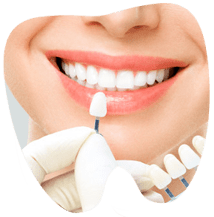
Here is some advice from Canadian dental association on how to keep your teeth safe and how to handle emergencies. https://www.cda-adc.ca/
Preventing dental injuries is as important to good oral health as regular visits to your dentist and personal dental care such as brushing and flossing. By taking simple precautions, you can avoid most common dental injuries.
This section provides information on preventing dental emergencies and what to do for some of the most common dental injuries.
Prevention for Adults
Common sense can help prevent many adult dental emergencies. Here are some tips for avoiding the most common dental injuries:
- Do not chew hard objects that can crack your teeth such as ice, popcorn kernels or hard candy.
- Use scissors to cut tape and threads, not your teeth.
- Wear a mouthguard if you are participating in sports or recreational activities to reduce the chances of damage to your teeth, lips, cheek and tongue.
Prevention for Children
Parents play a big role in keeping their children’s teeth healthy and clean. Good eating habits and daily oral hygiene help to prevent cavities. Here are some tips for preventing dental injuries:
- When driving in the car, always use infant car seats and properly adjusted seat belts for older children.
- Babies will chew on almost anything. Keep them away from hard things that could crack their teeth.
- Children fall a lot when they are learning to walk. Check for missing teeth, breaks, cracks or loose teeth and take your child to the dentist if you see any of these signs.
- If your child plays sports, ask your child’s dentist about a mouth protector or mouthguard to help prevent dental injuries. A mouthguard also acts as a cushion to prevent broken jaws, neck injuries and concussions. If you encourage your child to wear a mouthguard, it will become a good safety habit, like wearing a seat belt in the car or a helmet when riding a bicycle.
More about Mouthguards and dentistry
There are 3 basic types of mouthguards. Your dentist can explain the difference in cost and comfort, and how well they can protect you or your child.
- Stock mouthguards are inexpensive and come pre-formed, ready to wear. They can be bulky and can make breathing and talking difficult.
- Boil and bite mouthguards are available at many sporting goods stores. They can offer a better fit than stock mouth protectors and are softened in warm or hot water, according to manufacturer’s instructions. By softening the mouthguard, it can more easily take to the shape of your mouth.
- Custom-fitted mouthguards are made especially for you by your dentist. They are more expensive than the other types, but they offer a better fit. Your dentist can make a mouthguard that’s a perfect fit for your mouth.
…but accidents do happen, and knowing what to do can mean the difference between saving and losing a tooth. When you or a member of your family has a serious problem with a tooth, you need help fast.
Knocked Out Tooth
If the knocked-out tooth is a permanent (adult) tooth, your dentist may be able to put it back. You must act quickly. If the tooth is completely knocked out, rinse it with water but DO NOT scrub it, and try to put it back into the opening. Be careful to hold the tooth by the crown (top), not the root, so you do not damage the ligaments.
If you cannot put the tooth back into its opening, or if there’s a chance that the tooth might be swallowed, put it in a container of cold milk and take it with you to your dentist (or to the nearest dentist) right away. If you see bleeding from the opening, rinse the mouth out with water. Place a wad of tissue or gauze on the opening and bite down on it. The pressure applied will usually stop the bleeding. If you can get help within 10 minutes, there is a fair chance that the tooth will take root again.
Chipped or Broken Tooth
Broken teeth can almost always be saved. Call your dentist, explain what happened and ask to see him or her right away. If possible, bring in any pieces of the chipped or broken tooth to your dentist. If the break is small , your dentist may use a white filling to fix the tooth. If the break is serious, a root canal may be needed. Your tooth may also need a crown.
Badly bitten tongue or lip
If there is bleeding, apply pressure to the part of the mouth that is bleeding. Use a clean cloth to do this. If the lip is swollen, use an ice pack to keep the swelling down. If the bleeding does not stop, go to a hospital emergency room right away.
Possible broken jaw
Go to your dentist or a hospital emergency room immediately. On your way, apply ice to the jaw to help control the swelling.
Objects caught between teeth
Gently try to remove the object with dental floss. If you’re not successful, go to your dentist. Do not try to remove the object with a sharp or pointed instrument; it can cut your gums or scratch the surface of the teeth.
Toothache
Toothache or tooth pain is caused when the nerve root of a tooth is irritated. Tooth infection, decay, injury or loss of a tooth are the most common causes of dental pain. Call your dentist. Explain your symptoms and ask to be seen as soon as possible. Ease the pain with an over-the-counter pain medicine that works for you. Never put medication directly against the gums near an aching tooth because it may burn gum tissue. Hold an ice pack against your face at the spot of the sore tooth. Never use a heating pad, hot water bottle or any other source of heat on your jaw. Heat will make things worse instead of better.











